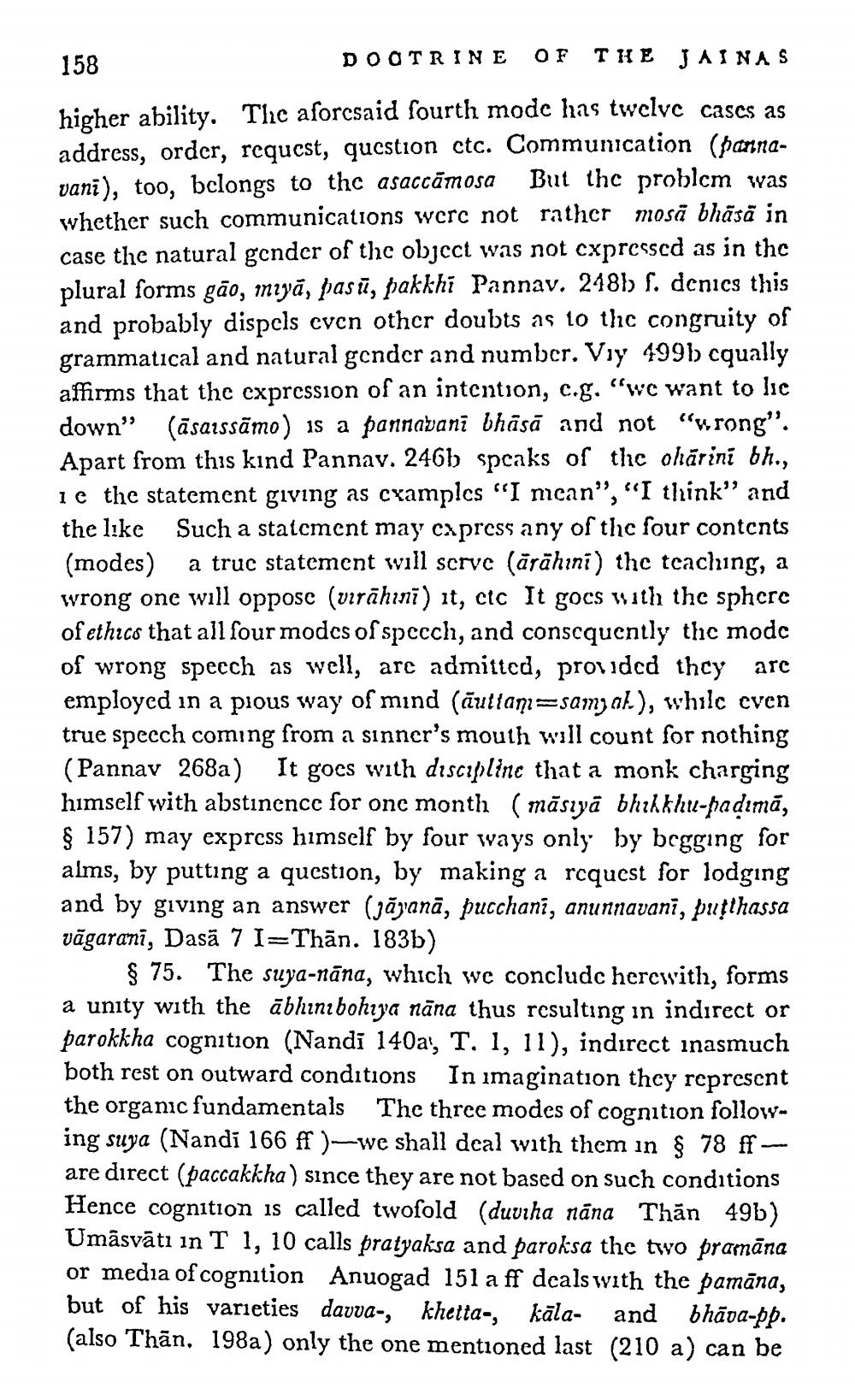________________
158
DOCTRINE OF THE JAINAS higher ability. The aforesaid fourth mode has twelvc cascs as address, order, requcst, question ctc. Communication (pannavanī), too, belongs to thc asaccāmosa But the problem was whether such communications were not rather mosā bhāsā in case the natural gender of the object was not cxprcsscd as in the plural forms gão, mayā, pasū, pakkhi Pannav. 2485 f. dcnics this and probably dispels cvcn other doubts as to the congruity of grammatical and natural gender and number. Viy 499b cqually affirms that the expression of an intention, c.g. "we want to lic down" (āsaissāmo) is a pannawani bhāsā and not "urong''. Apart from this kind Pannav. 246b spcaks of the ohárini bh., ie the statement giving as cxamples "I mean", "I think" and the like Such a statement may cxprcss any of the four contents (modes) a truc statement will scrve (ārāhini) the teaching, a wrong one will opposc (virähini) it, ctc It gocs with the sphere of ethics that all four modcs of specch, and conscquently thc modo of wrong specch as well, are admitted, provided thcy arc employed in a pious way of mind (āutlam=samg al.), whilc even true speech coming from a sinner's mouth will count for nothing (Pannav 268a) It goes with discipline that a monk charging himself with abstinence for one month ( māsiyā bhikkhu-padımā, § 157) may express himself by four ways only by begging for alms, by putting a question, by making a request for lodging and by giving an answer (jāpanā, pucchanī, anunnavanī, putihassa vāgarani, Dasā 7 I=Thān. 183b)
§ 75. The suya-nāna, which we concludc hercwith, forms a unity with the ābhinibohiya nāna thus resulting in indirect or parokkha cognition (Nandi 140a, T. 1, 11), indirect inasmuch both rest on outward conditions In imagination they represent the organic fundamentals The three modes of cognition following suya (Nandi 166 f )-we shall deal with them in § 78 ff - are direct (paccakkha ) since they are not based on such conditions Hence cognition is called twofold (duviha nāna Thăn 49b) Umāsvātı in T 1, 10 calls pratyaksa and paroksa the two pramāna or media of cognition Anuogad 151 a ff deals with the pamāna, but of his varieties davva-, khetta., kāla- and bhāva-pb. (also Thān. 198a) only the one mentioned last (210 a) can be




